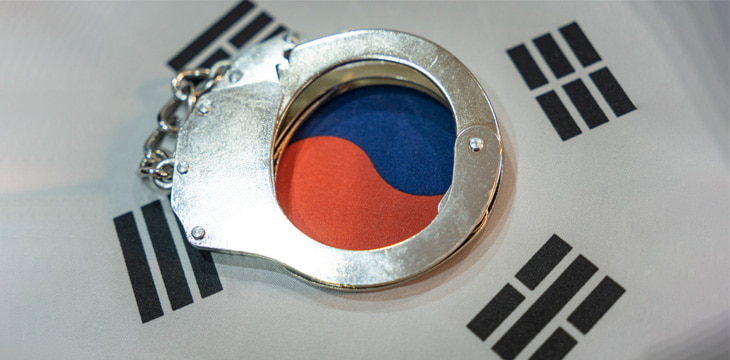|
Getting your Trinity Audio player ready...
|
An ex-Coinone employee is the latest to be arrested by South Korean law enforcement agents on allegations that they accepted bribes to list tokens on the digital currency exchange.
Officials from the Seoul Southern District Prosecutors’ Office disclosed that the bribery occurred sometime in 2020, preceding the bull market. The full name of the former employee was not revealed, citing South Korea’s privacy laws as investigators prepare to prosecute him in court.
Authorities said the former staff, identified only by the family name Jeon, earned over $1.47 million in the illegal scheme that resulted in listing several tokens on Coinone’s platform. The bribes were transmitted via an unnamed broker, and the depth of the initiative suggests that the worker in question was a high-ranking official of the platform.
Founded in 2014, Coinone is one of the top five digital currency exchanges in South Korea, with average daily trading volumes exceeding $60 million. Authorities confirm that the investigations will extend to other leading exchanges in the country as they suspect the bribes are connected with a large syndicate.
Earlier this week, authorities announced the probe of Lee Sang-jun, an official of Bithumb’s subsidiary, over allegations of accepting bribes in exchange for listing tokens on the platform. The investigations led to the raid on Bithumb’s office and Lee’s private residence in search of evidence to support their claim.
Insiders say that law enforcement agencies are wrapping up investigations into similar offenses in other leading exchanges like Korbit, Upbit, and Gopax.
Listing tokens on exchanges has been controlled by a coalition of leading South Korean digital currency exchanges called the Digital Asset Exchange Joint Consultative Body (DAXA). Activities of the body raised eyebrows following the controversy that arose from the delisting of game publisher Wemade’s tokens from leading platforms.
In response, the country’s regulators are looking to whittle down DAXA’s powers by mandating token issuers to seek approval from authorities before listing on exchanges. It is widely expected that the changes could be embedded in the proposed Digital Asset Basic Act designed to provide a robust legal framework for the industry.
Collapses trigger regulatory action
Terra’s collapse in 2021 appears to have riled regulators into heightened enforcement action. In the weeks following the collapse, authorities conducted multiple raids at the offices of leading exchanges nationwide in search of evidence.
New monitoring and reporting rules were implemented to prevent a repeat of the catastrophe that caused South Korean investors billions of dollars in losses.
Flowing from the heightened monitoring, Bithumb appears to be the hardest hit following multiple investigations into its executives. The exchange’s de facto owner is under investigation for embezzlement and stock price manipulation, while the country’s tax watchdog probes the firm for tax evasion.
Watch: Trust But Verify: Everything

 03-04-2026
03-04-2026 




